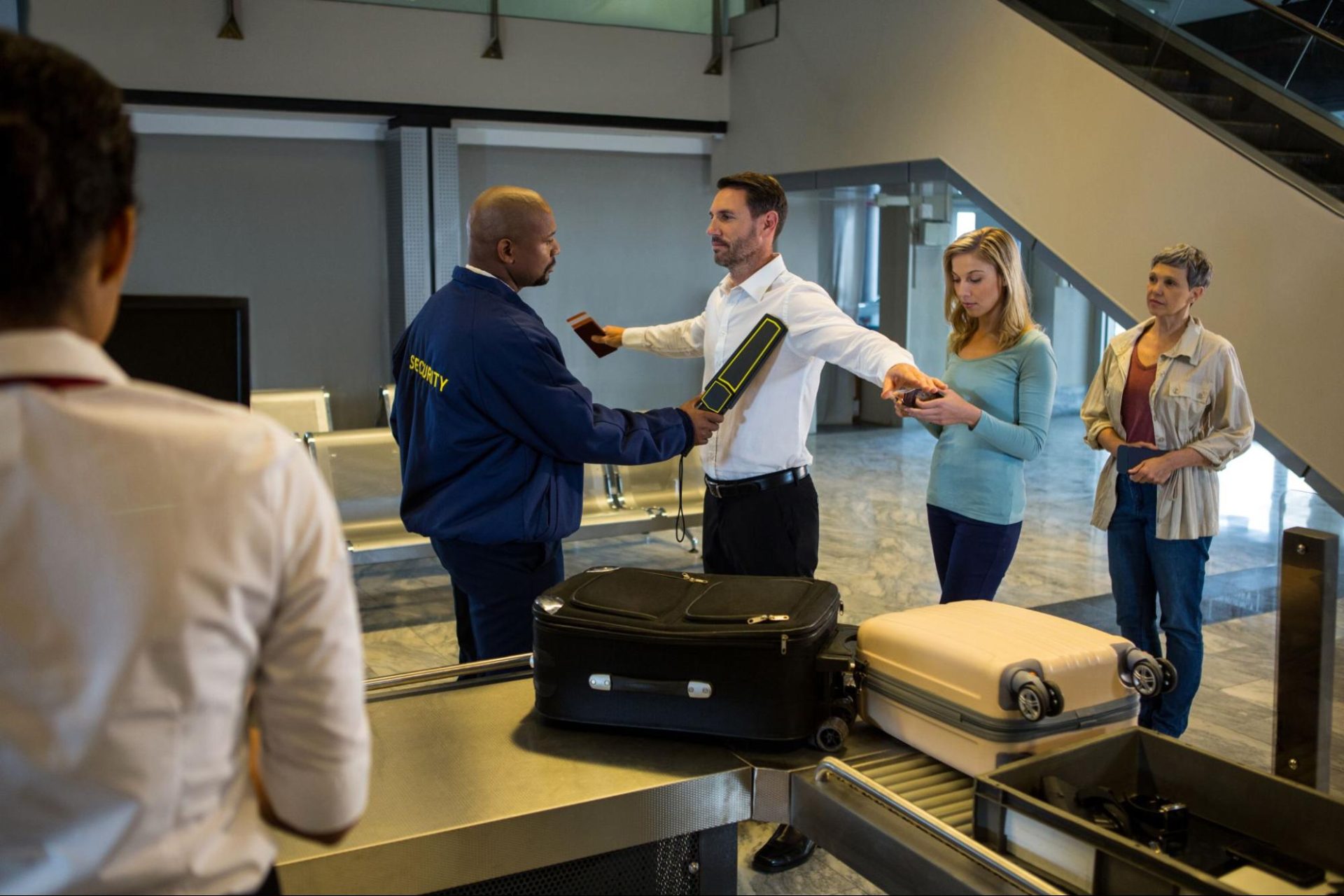
Airport security isn’t as tight as you might think. According to the Transportation Security Administration (TSA), there have been at least 300 instances of people bypassing parts of airport security since March 2023.1
In November, two women faced arrest at Phoenix Sky Harbor International Airport after breaching a secured exit due to running late for their flight. Meanwhile, at Palm Springs International Airport in February, a ticketed traveler passed through an unstaffed body scanner, prompting authorities to evacuate post-security areas as a precautionary measure.
In a separate incident in February, a woman managed to bypass TSA officers who check IDs at Nashville International Airport. She then proceeded to sneak into the bag-screening line. After her belongings passed through the X-ray, she boarded an American Airlines flight without a ticket, eventually flying to Los Angeles International Airport where she was detained by the FBI. As of now, she has not faced charges, with the FBI refraining from commenting on an ongoing investigation.
Clear, a private screening service offering an expedited alternative to TSA queues, has also faced scrutiny due to breaches in the past two years.2 In one instance last year, an individual managed to pass Clear security using a boarding pass retrieved from an airport garbage can. Another incident in 2022 involved TSA officers identifying ammunition in a man’s luggage, only to discover that he had utilized false identification to bypass Clear screening.
These security concerns are coming to light at a time when the TSA is investing in heightened security measures, including a $3.8 million contract with AI security company Liberty Defense Holdings (TSXV:SCAN) (OTCQB:LDDFF) for its multi-technology security solutions for detecting concealed weapons in high-traffic areas such as airports, stadiums, and schools. This contract focuses on Research and Development to provide the TSA with software, engineering, and enhancements to Liberty Defense‘s High-Definition Advanced Imaging Technology (HD-AIT) Wideband Upgrade Kit to improve detection capabilities and enhance the passenger experience.
Liberty Defense has also begun deploying its HEXWAVE™ system at North American airports to improve screening for passengers and staff, including Denver International, Toronto Pearson, and one unit to the TSA under its On-Person Screening Capability Program for the screening of Aviation Workers. The HEXWAVE™ system uses AI, electromagnetic waves, and 3D imaging to scan and detect potentially dangerous items like metal, 3D-printed plastic guns, powders, and liquids. The process is quick and contactless, allowing individuals to walk through a portal without removing their keys or cell phones.
On April 23, Liberty Defense Holdings (TSXV:SCAN) (OTCQB:LDDFF) announced international shipments of HEXWAVE™ to the Subic Bay Airport in the Philippines and to Schiphol Airport in Amsterdam, the Netherlands. Liberty Defense (TSXV:SCAN) (OTCQB:LDDFF) has already made sales in Europe3 and Asia,4 with more international deals coming down the pipeline thanks to the company’s robust international distribution network, which is facilitated by two prominent partners in the security and detection industry. With global offices and representation across Europe, the Middle East, Africa, and Asia, these partners have deployed thousands of security systems. HEXWAVE perfectly complements the requirements for on-person screening in these locations.

This news story relied on a press release distributed by News Direct. Blockchain Registration, Verification & Enhancement provided by NewsRamp™. The source URL for this press release is TSA Reports Rise in Airport Security Breaches in Last 12 Months.